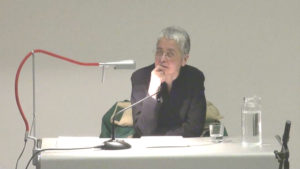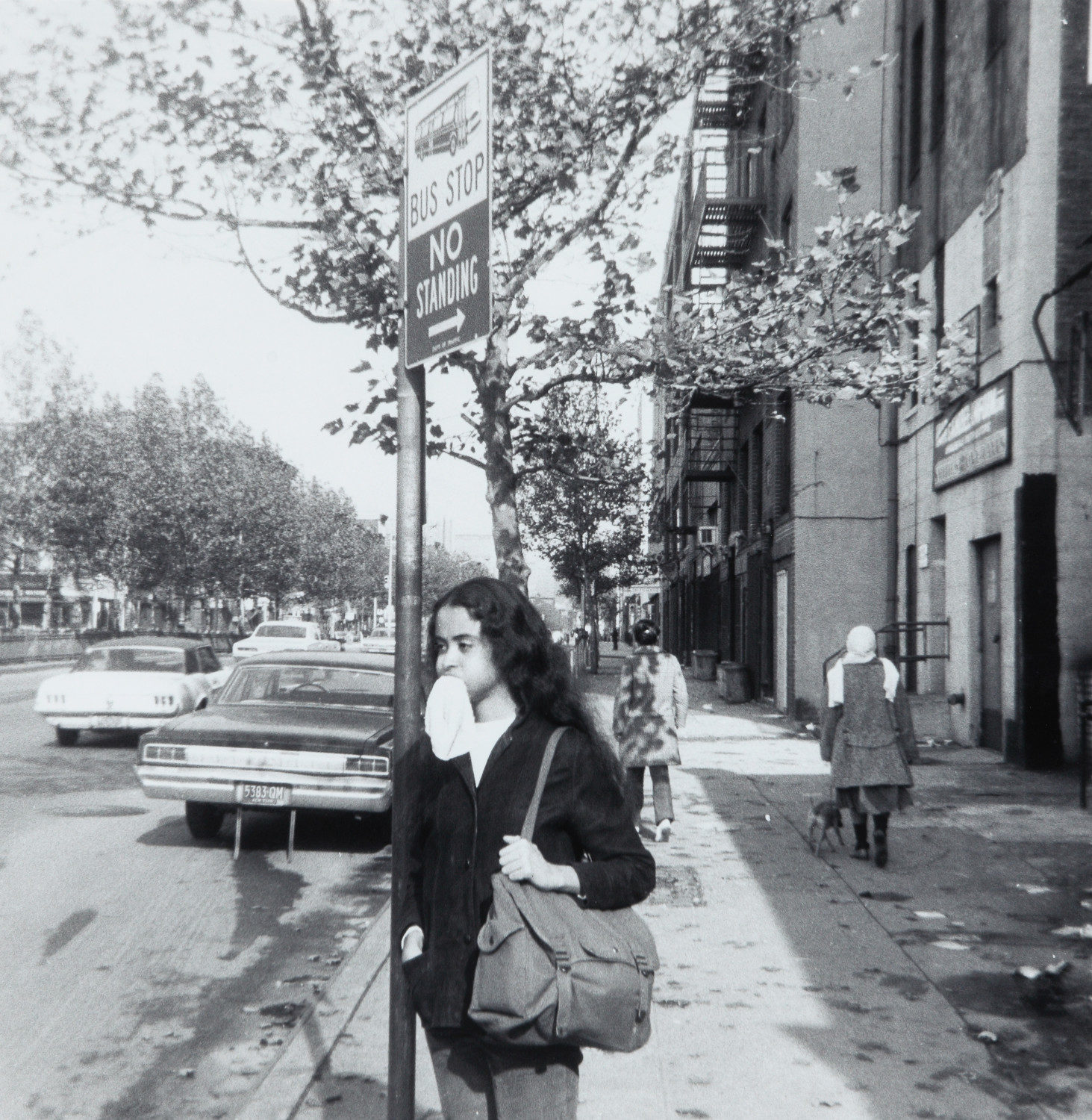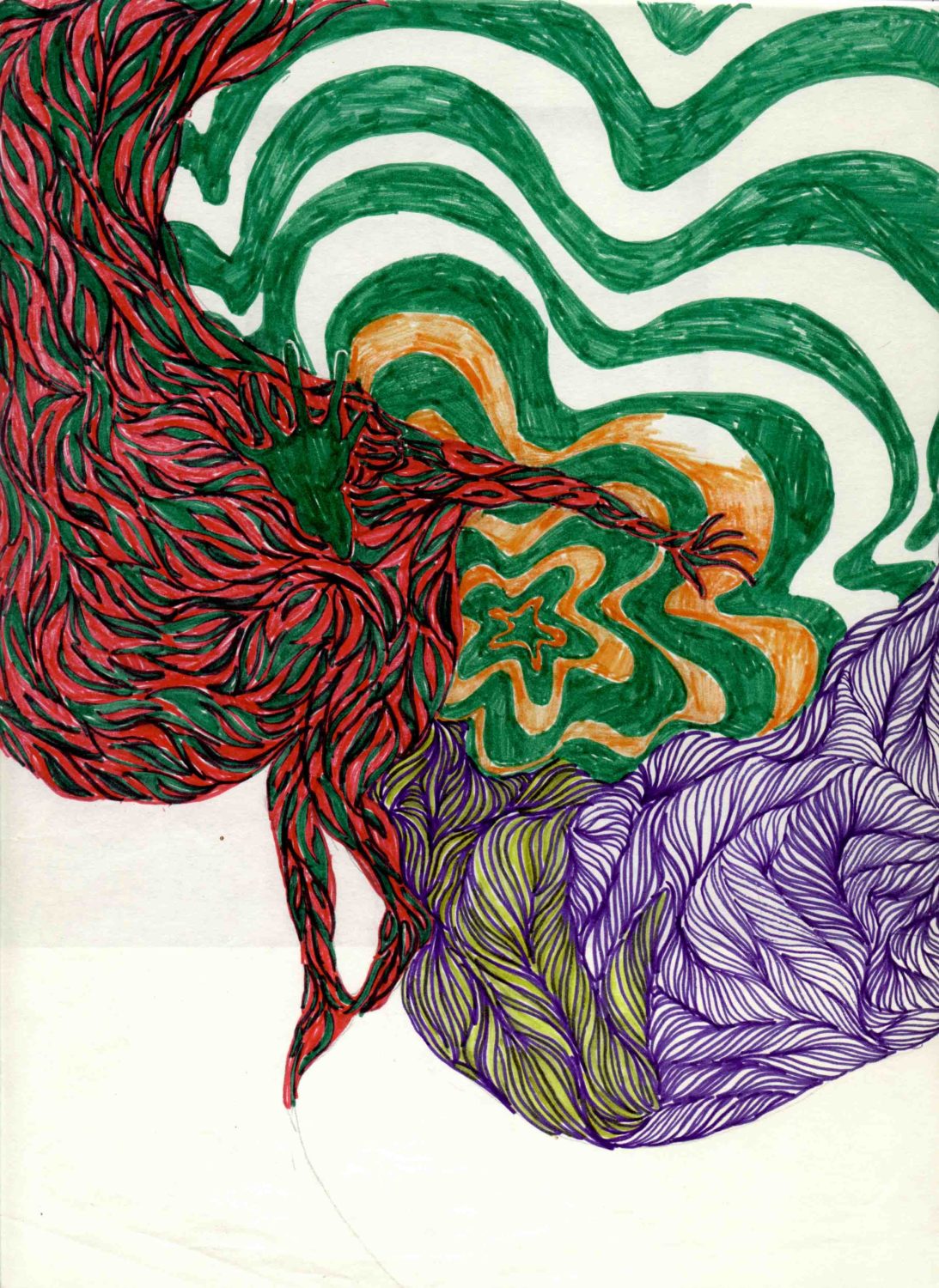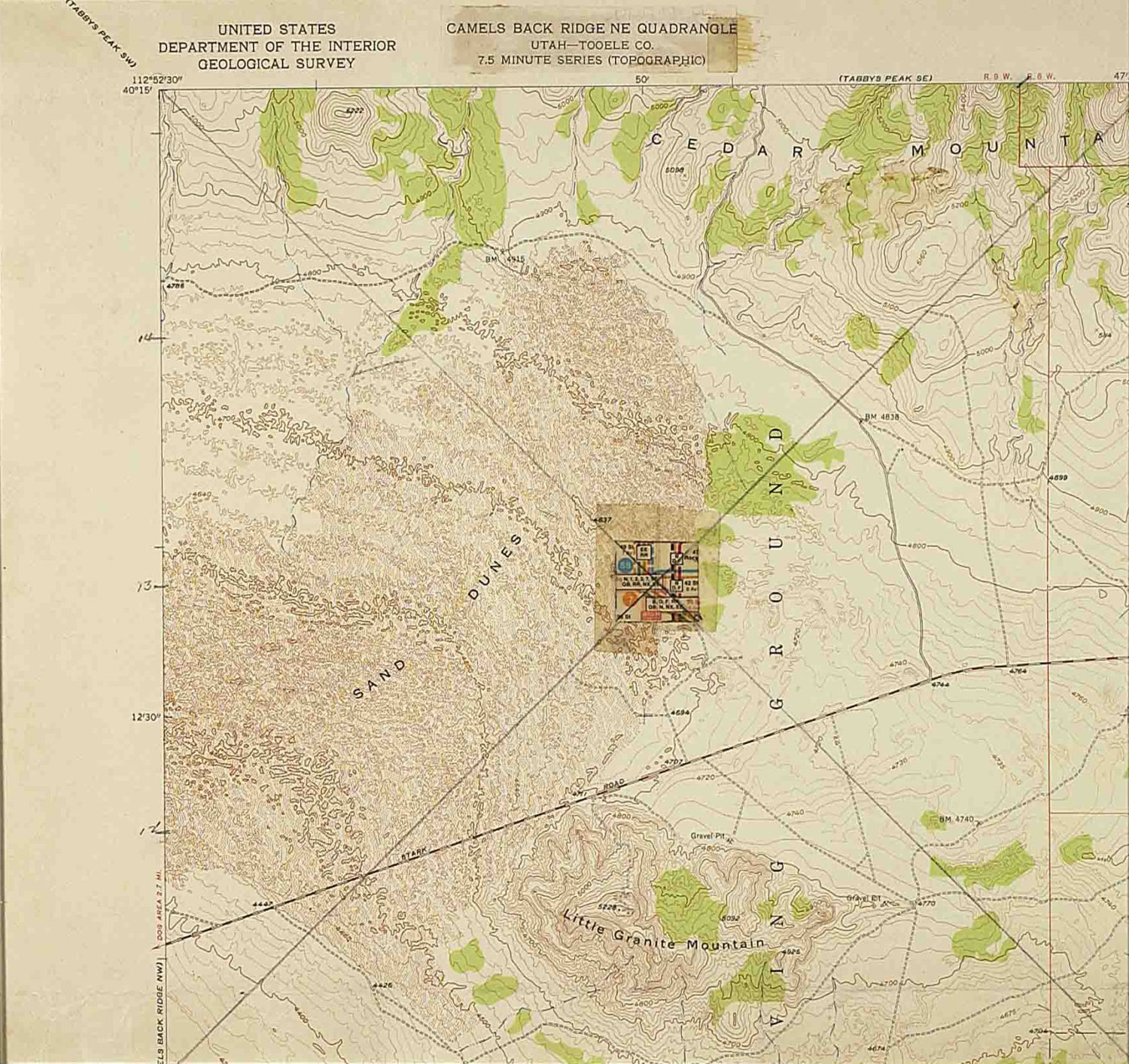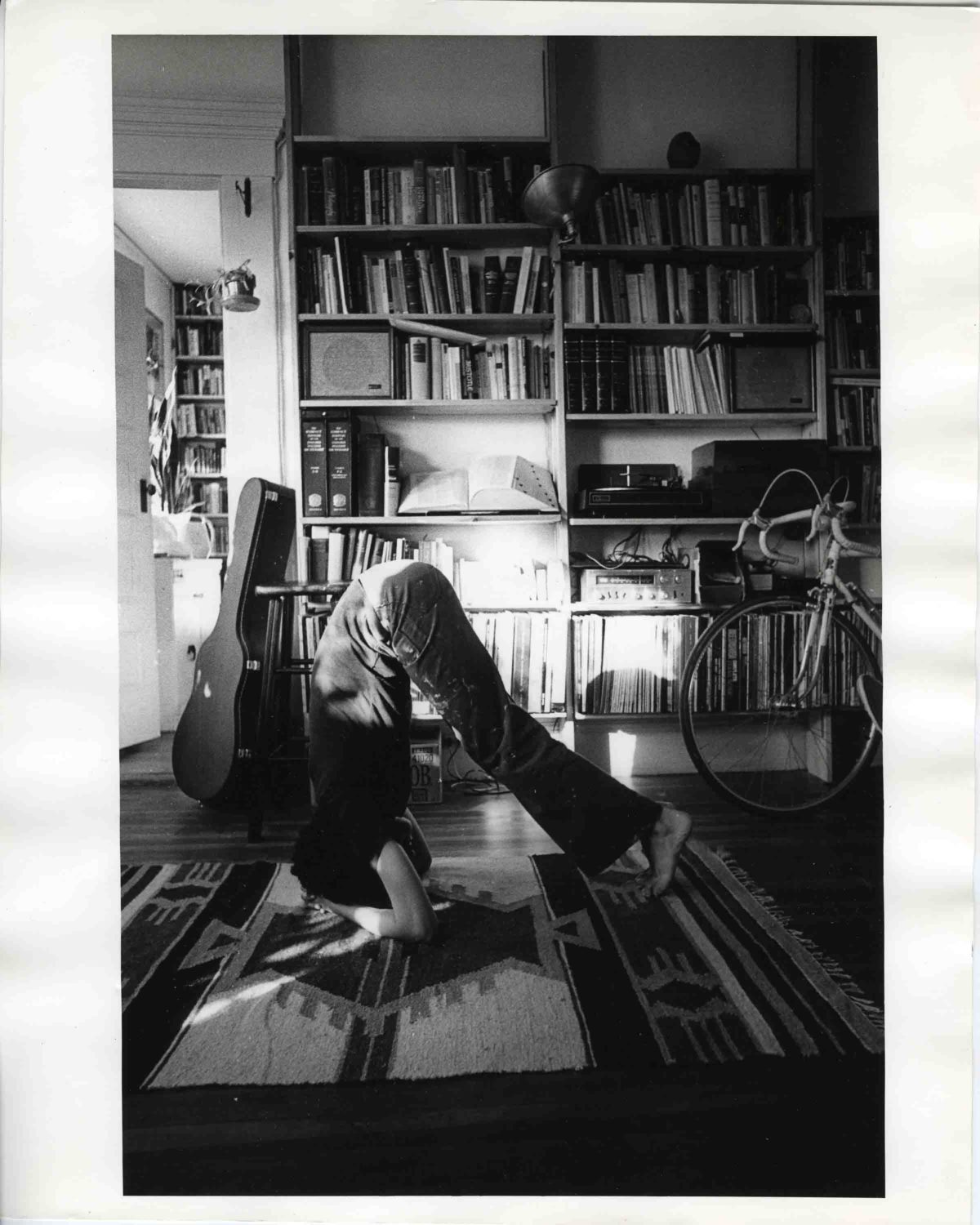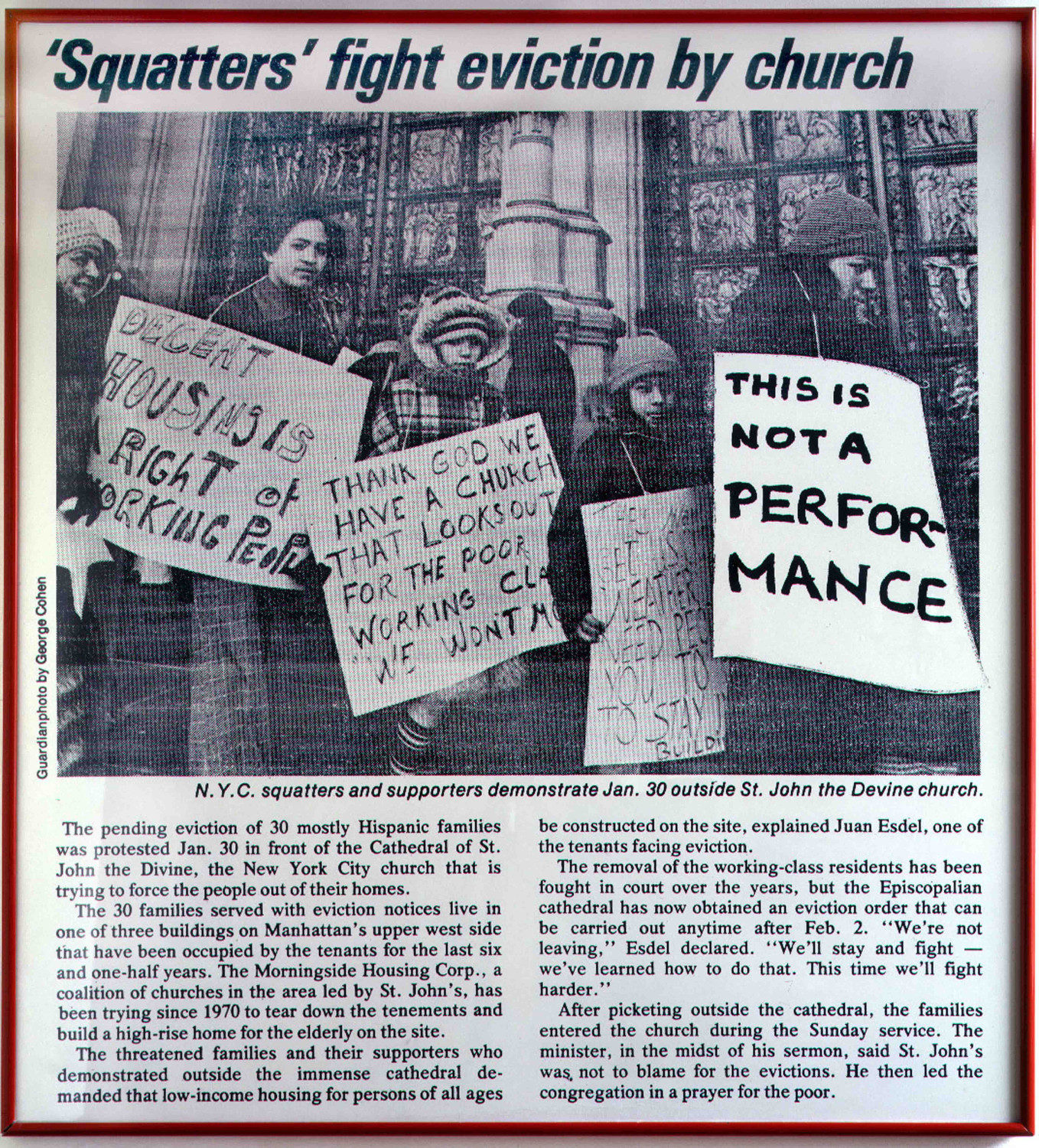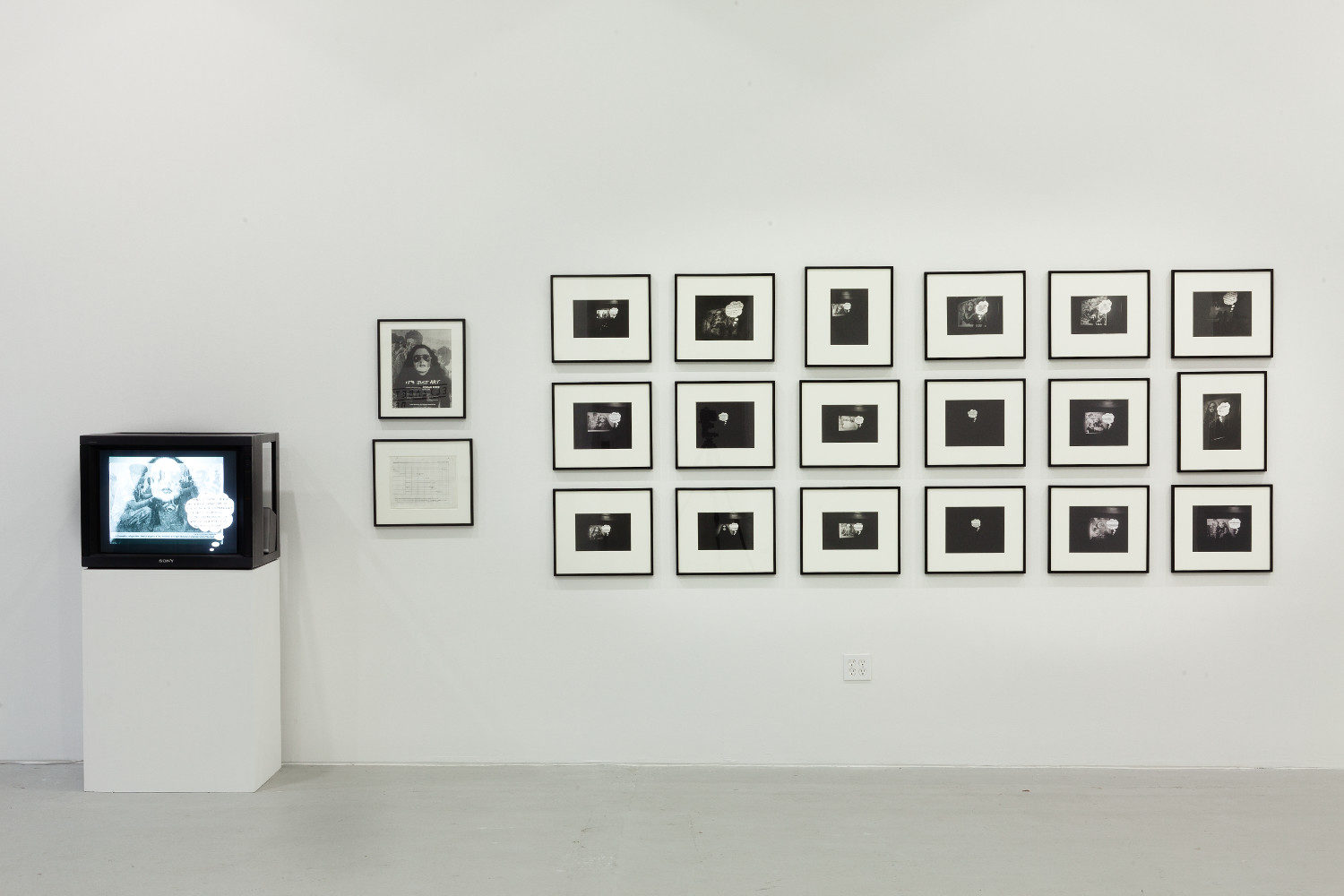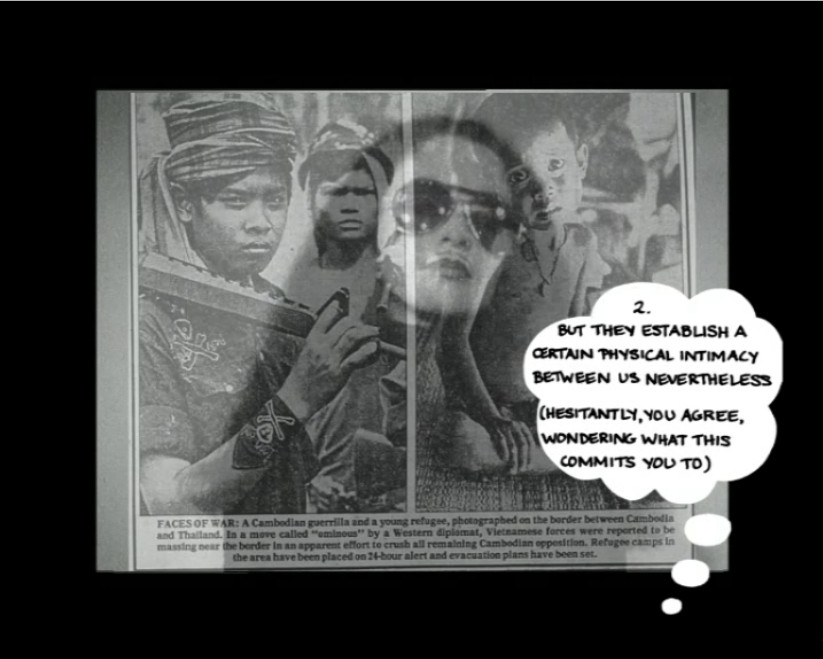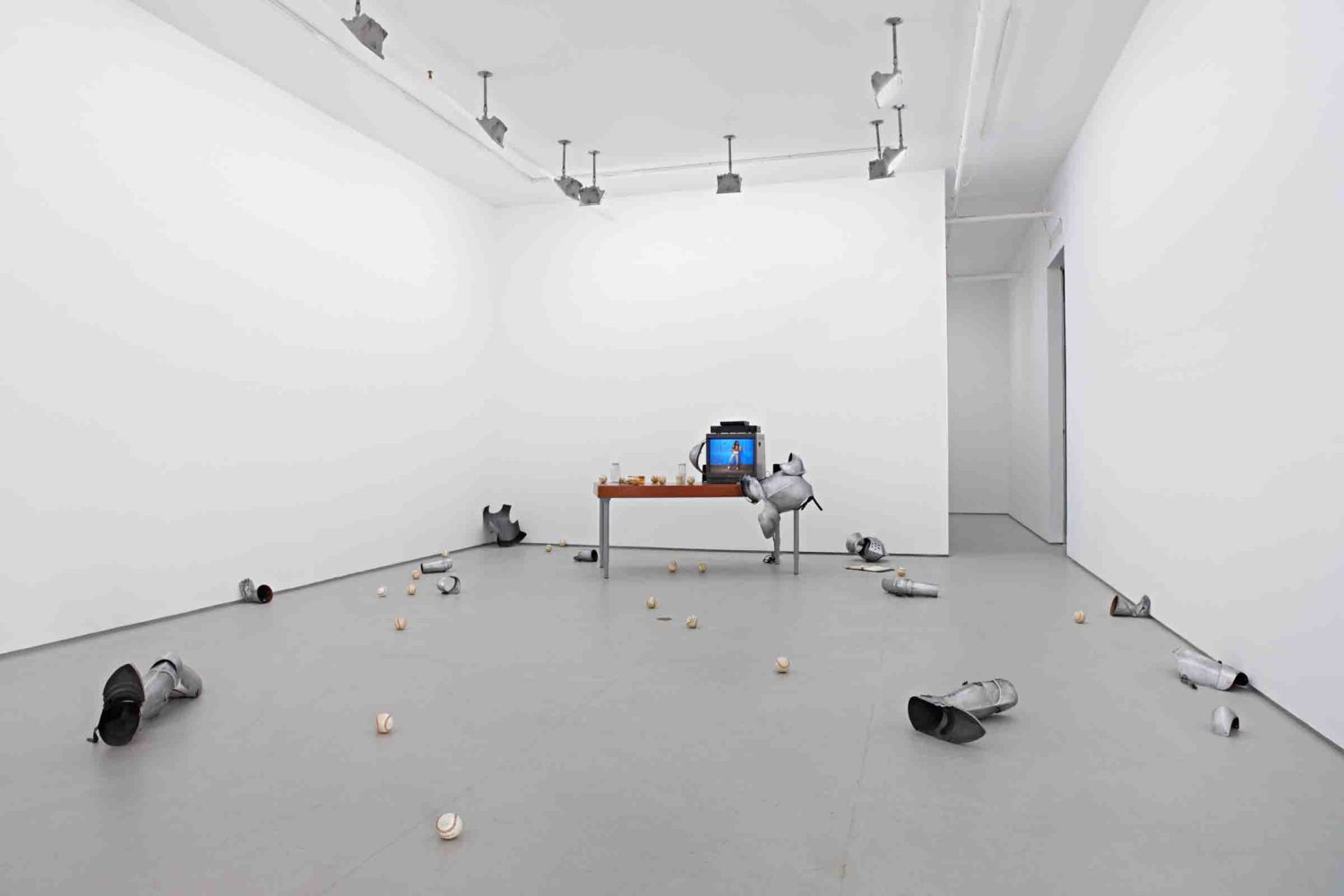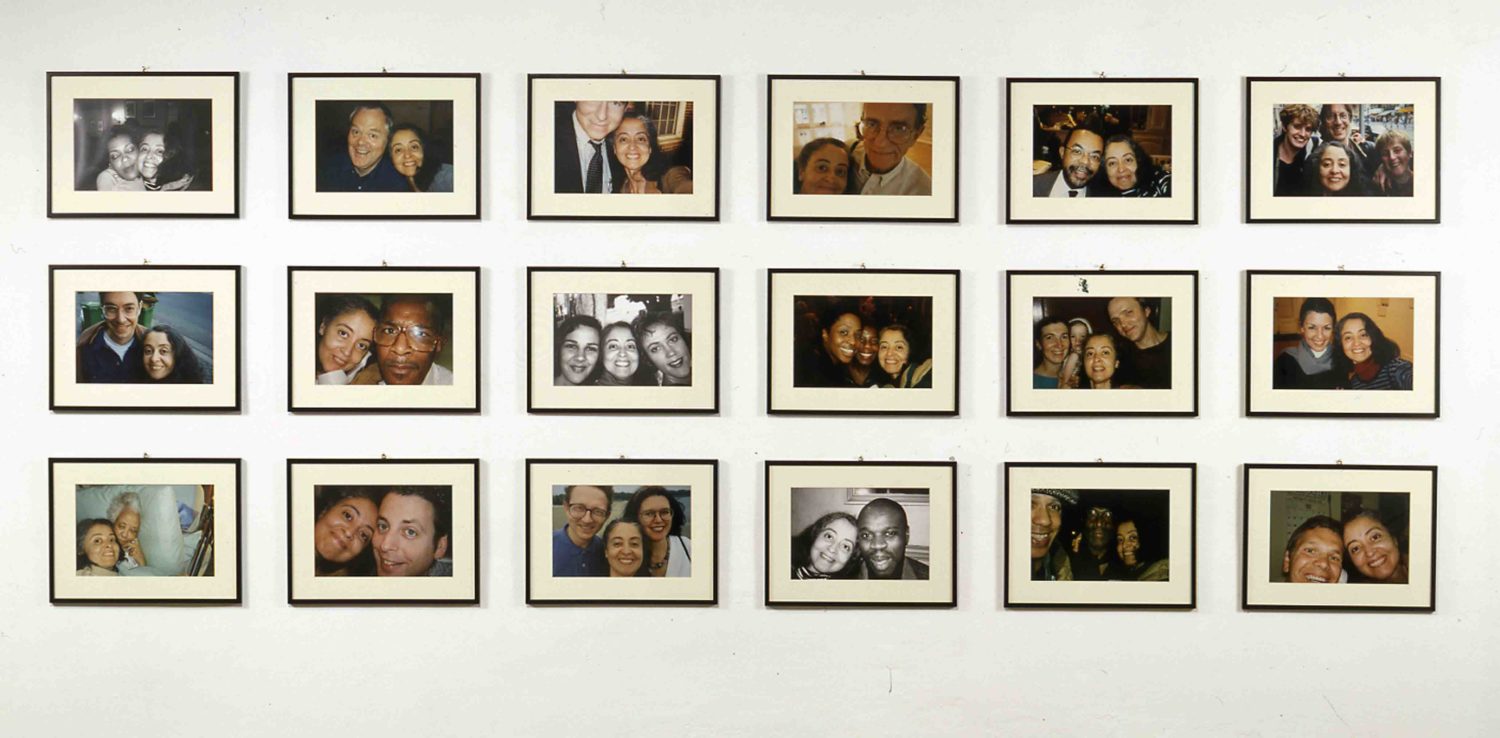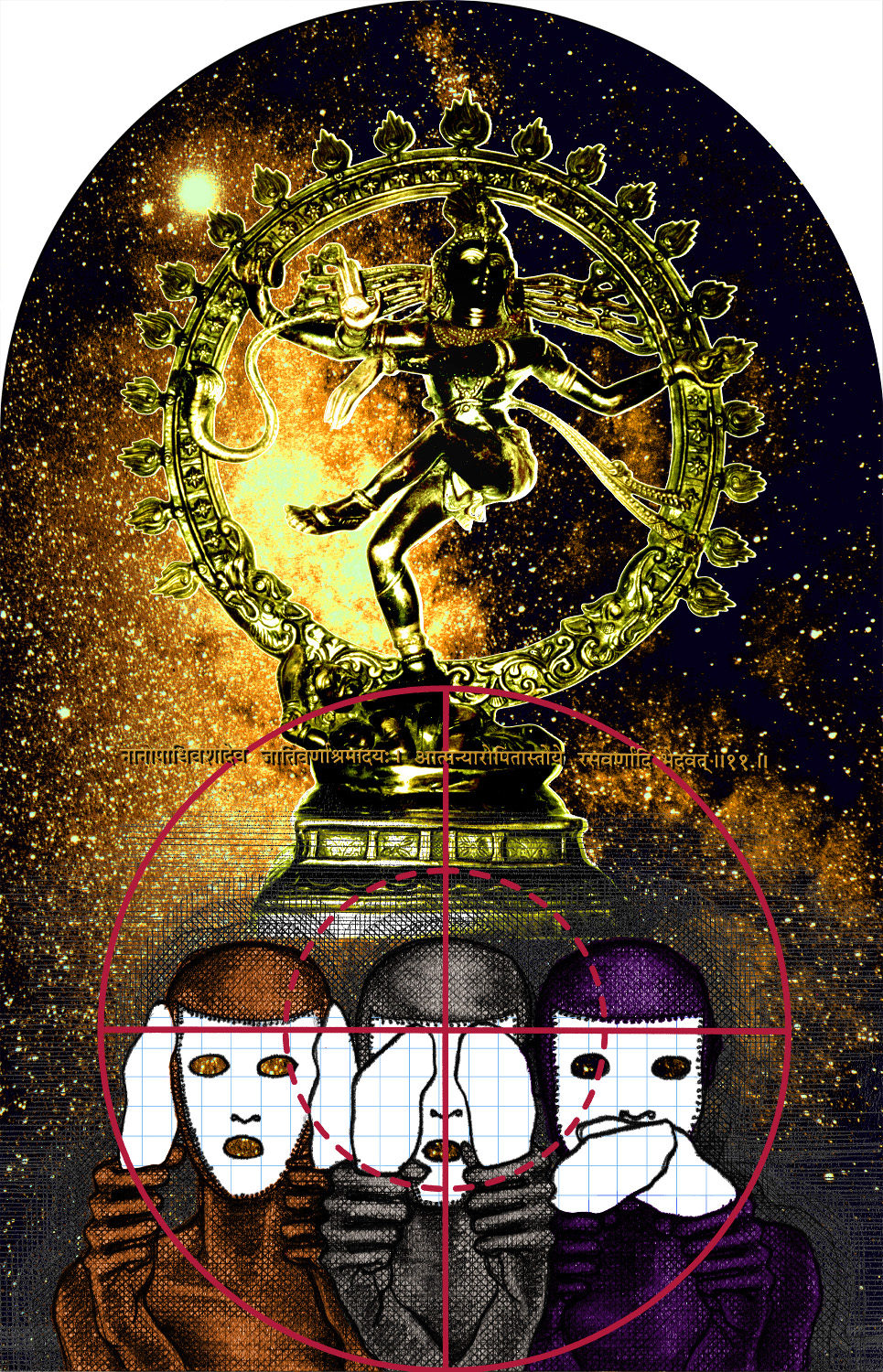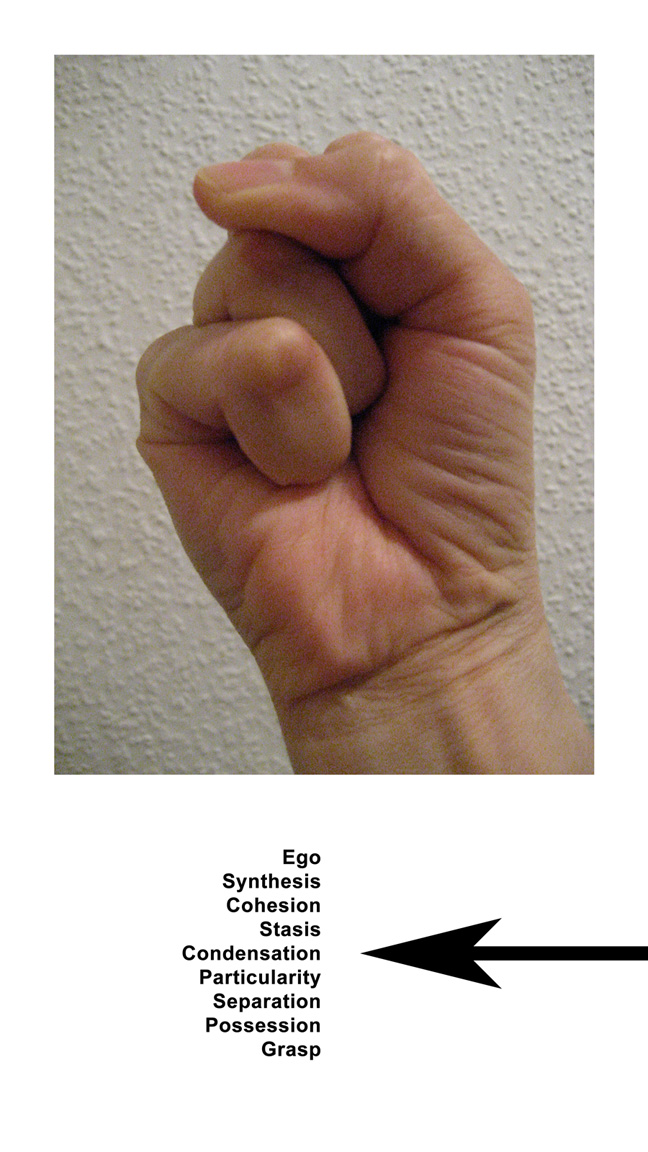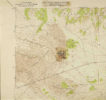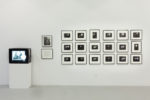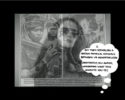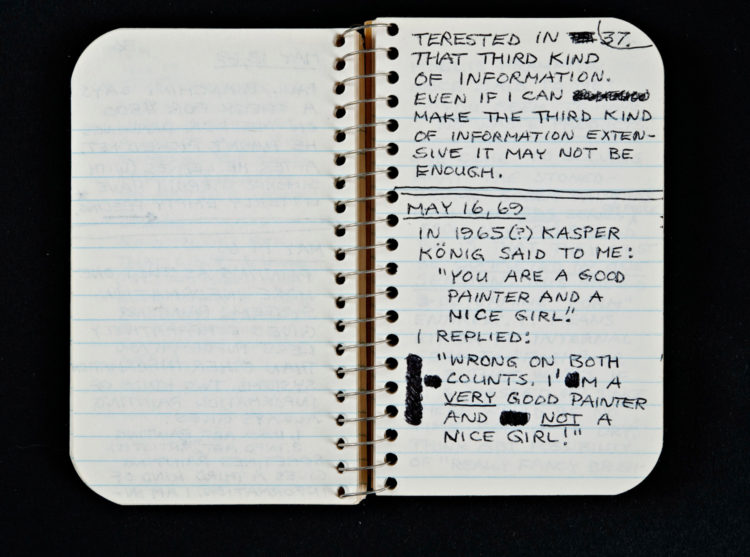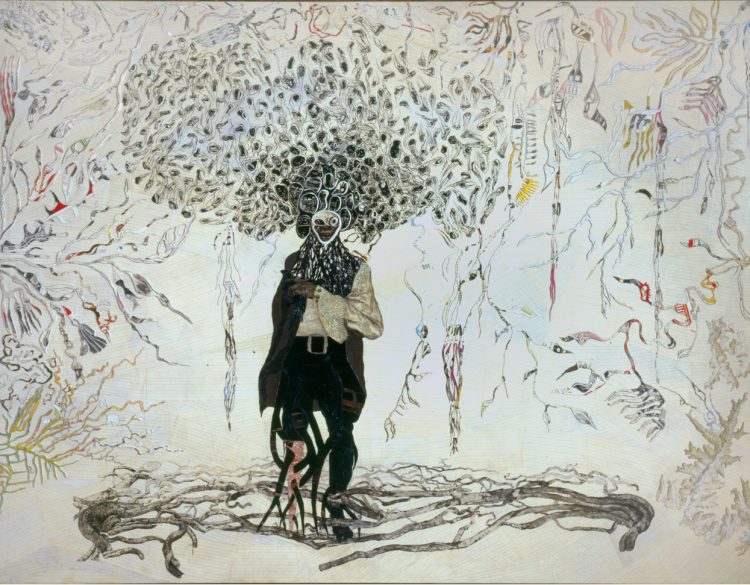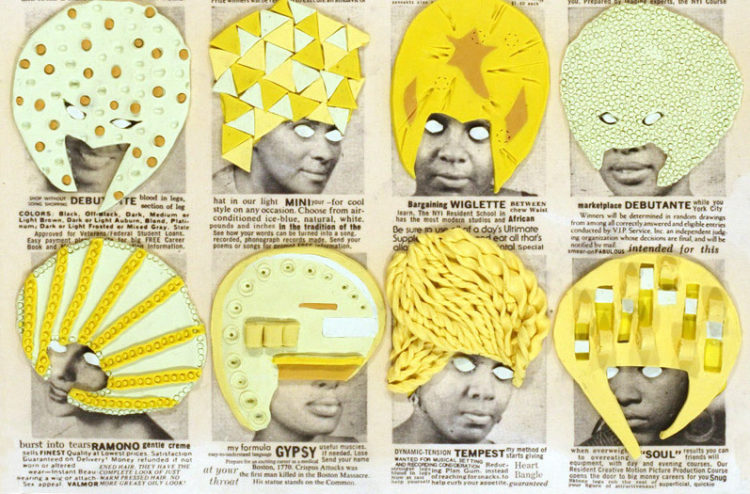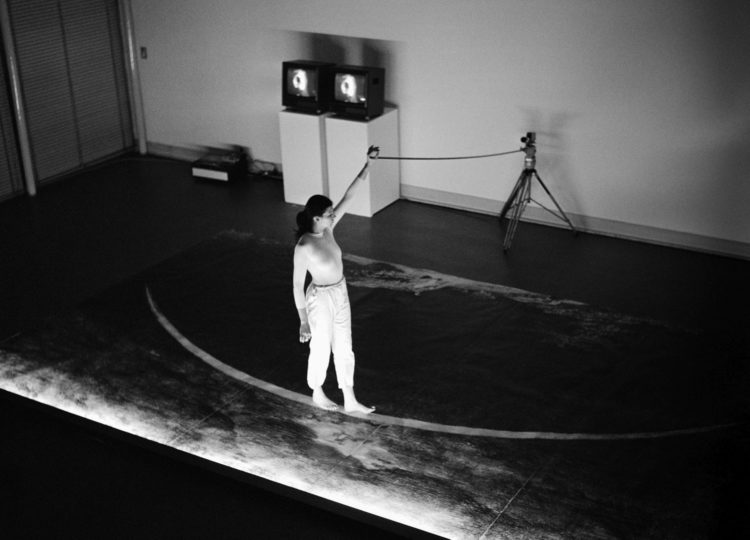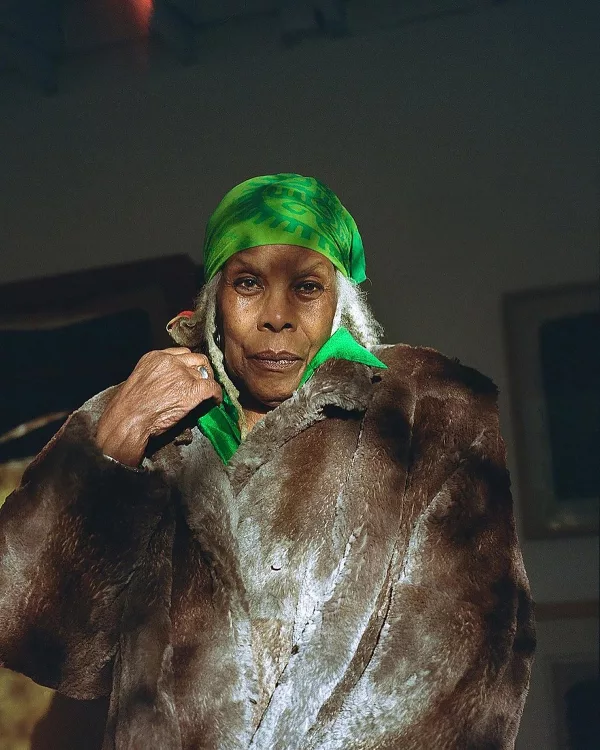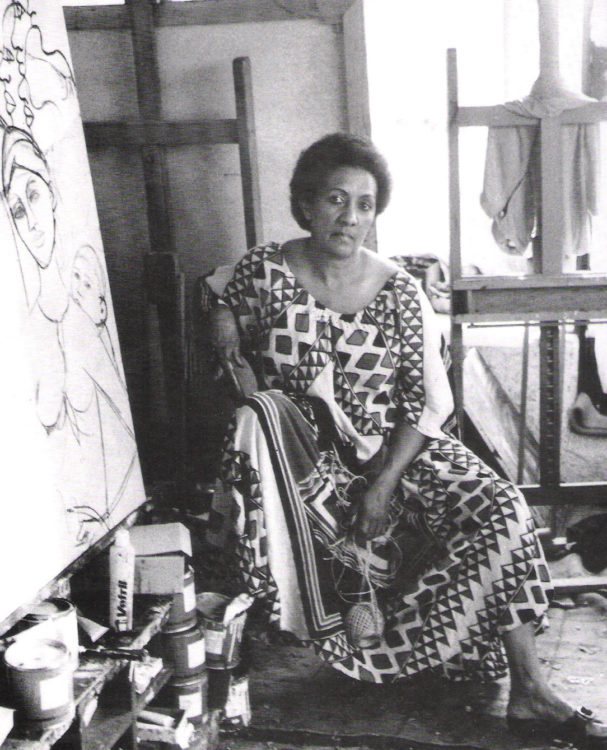Adrian Piper
Bowles John P., Adrian Piper : Race, Gender and Embodiment, Durham, Duke University Press, 2011
→Nicol M. (ed.), Adrian Piper : textes d’œuvres et essais, exh. cat., Institut d’art contemporain, Villeurbanne (31 janvier – 25 mai 2003), Villeurbanne, Institut d’art contemporain, 2003
→Berger Maurice (ed.), Adrian Piper : A retrospective : 1965-2000, exh. cat., Fine Arts Gallery UMBC, Baltimore (1999-2000), New York, Art Publishers, 1999
Adrian Piper – since 1965, Barcelona, 17 October 2003 – 18 January 2004
→Adrian Piper : A Retrospective, 1965-2000, Fine Arts Gallery UMBC, Baltimore, 22 October 1999 – 15 January 2000
→Adrian Piper : textes d’œuvres et essais, Institut d’art contemporain, Villeurbanne, 31 January – 25 May 2003
American conceptual artist, performer and philosopher.
Born in an African-American working-class family, Adrian Margaret Smith Piper grew up in Harlem but was able to access higher education thanks to scholarships. After graduating from the prestigious New York School of Visual Arts in 1969, she immediately associated herself with conceptual art – an artistic movement that gives prominence to the ideas conveyed by the artwork. However, her work stood out because of its highly political dimension: as from 1970, the questions of race and gender became central to her work, which echoed her experience as a black woman and her attempts to be acknowledged and accepted as such. Many of her texts and videos directly challenge the viewers or readers to take a stance. Her Political Self-Portraits 1-3 (1978-1980) are a reinterpretation of her youth in terms of belonging and exclusion: with her fairly light skin and straight hair, she was not perceived as “black enough” in Harlem, while still being one of the only African-Americans in the several schools she attended, where the racism she faced, although latent, remained nonetheless hurtful. The artist is mostly known for her performance art in the streets of New York: in the series Catalysis (1970-1971), she dressed in foul-smelling clothes and sat on the subway or in a bookstore so as to prompt intense reactions, both physiological and psychological, thus exceeding the purely intellectual reaction usually pursued by conceptual art.
Her explorations led her to study philosophy, particularly in Harvard, where she presented a dissertation in moral philosophy in 1981 under the direction of John Rawls. After teaching at Harvard and Georgetown, among others, she became the first African-American tenured professor in philosophy in the United States in 1987. However, after discovering during a journey abroad that she was listed as a “suspicious traveller,” she refused to return to her country. She consequently lost her tenure at Wellesley College and has since lived in Berlin, where she founded the Adrian Piper Research Archive, which collects various documents on her three-way practice (art, philosophy, yoga). She is the author of many articles and several philosophy books, especially about Hegel, Kant, political philosophy, and xenophobia.
© Éditions des femmes – Antoinette Fouque, 2013
© Archives of Women Artists, Research and Exhibitions, 2017



